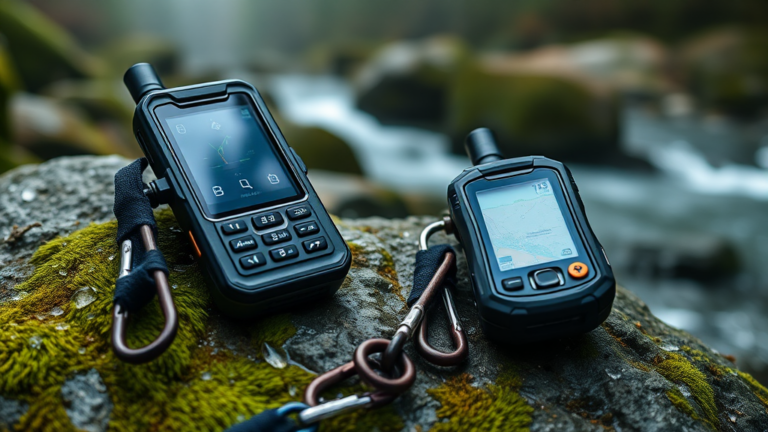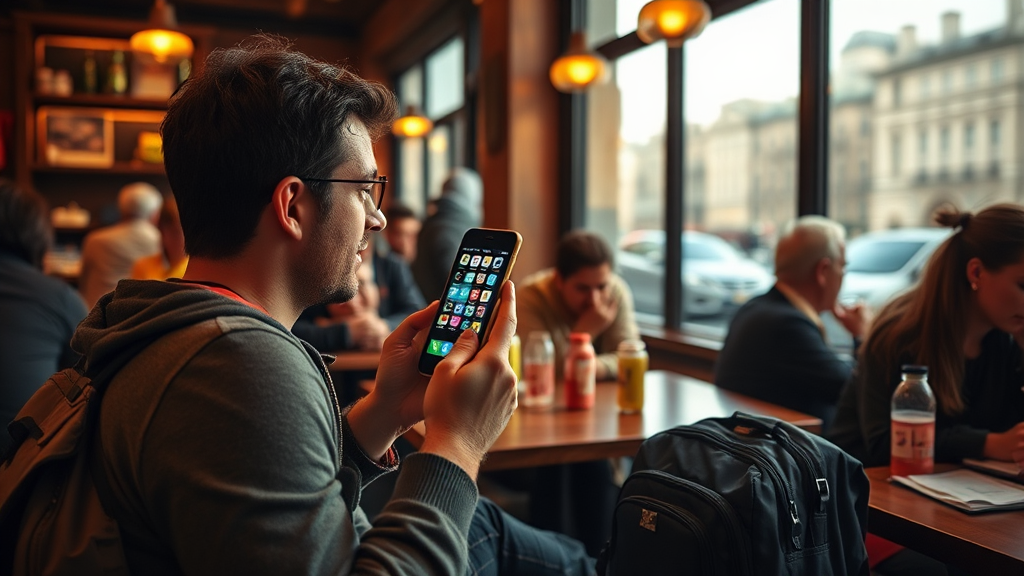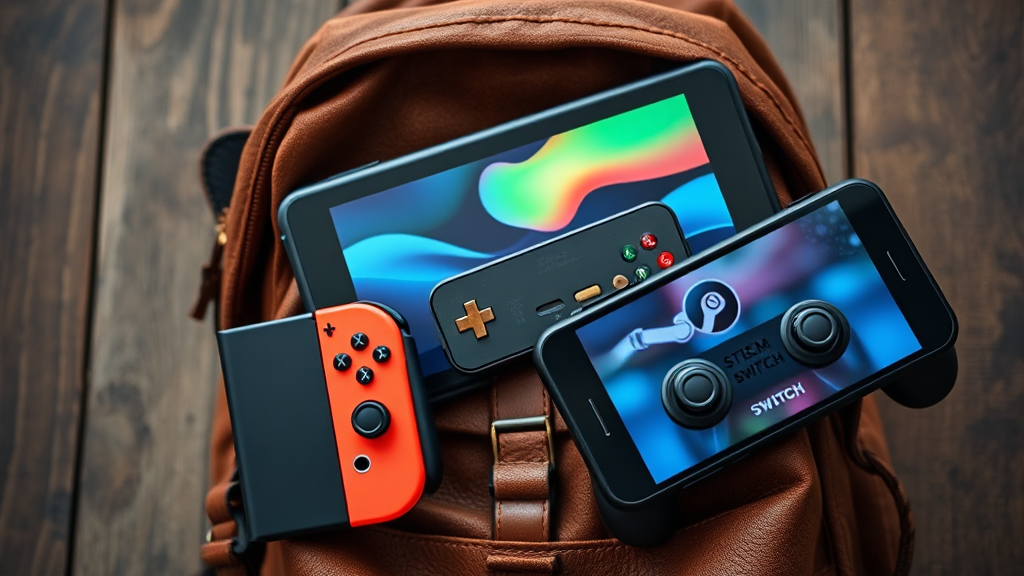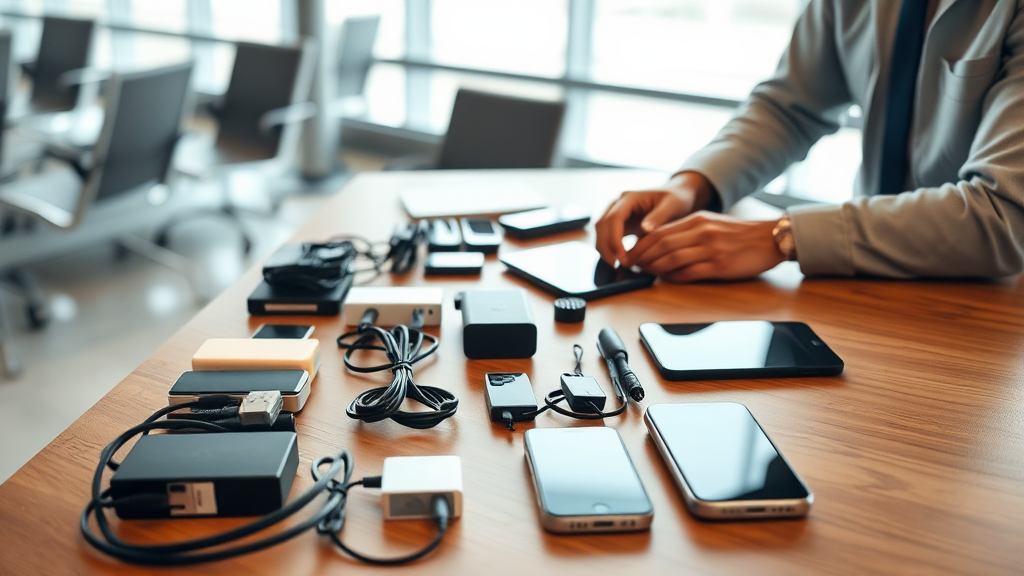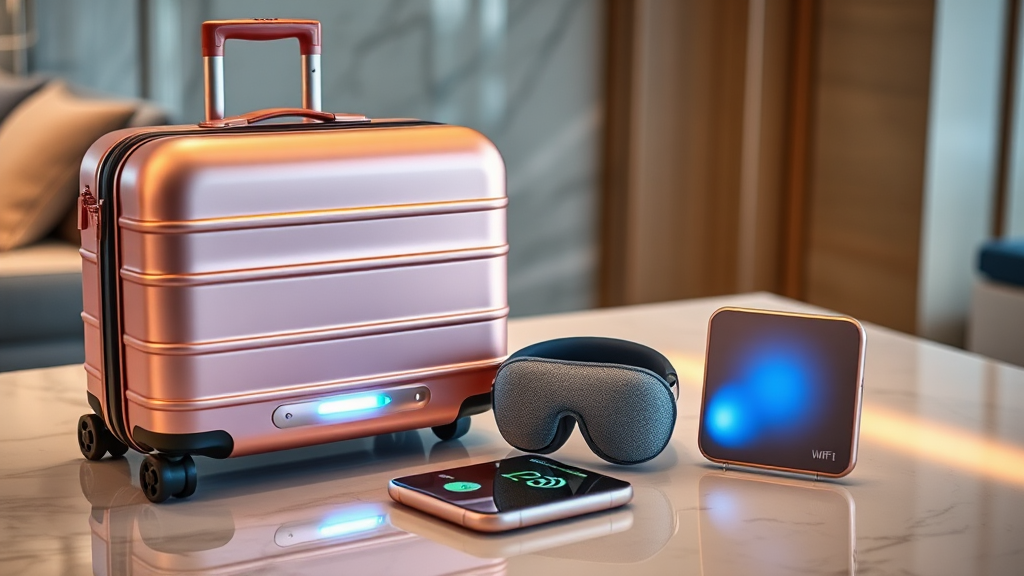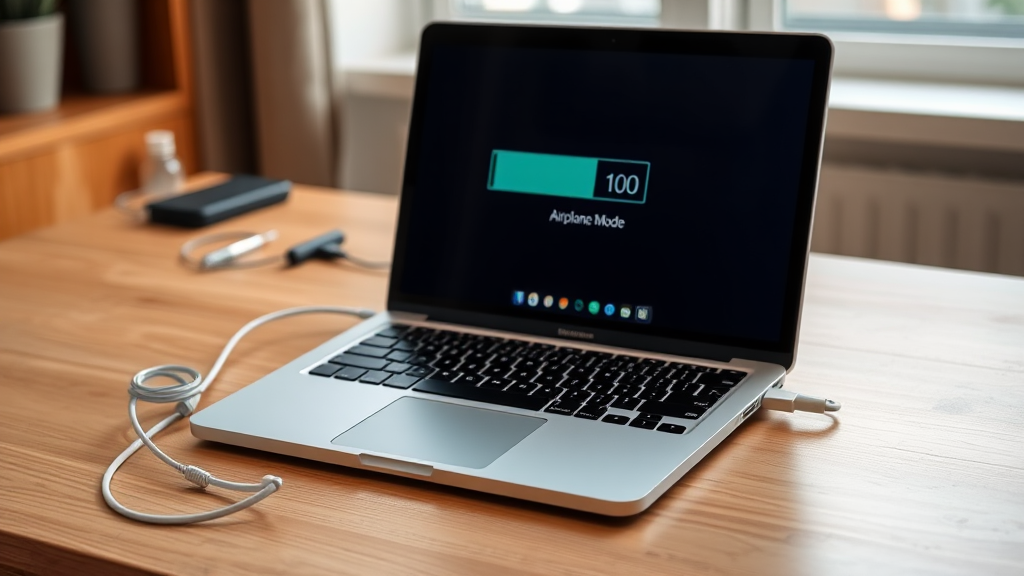Backpackers and adventure travelers are individuals who prioritize mobility and flexibility. They often travel light, exploring diverse locations that can range from urban environments to remote wilderness. Their tech needs are focused on durability, portability, and efficient battery life, as they may not always have access to power sources or stable work environments. Backpackers and adventure travelers need devices that can handle rough conditions and adapt to various travel scenarios.
Common Characteristics:
- Tend to pack light and prefer tech that can withstand rough handling or extreme environments.
- Frequently travel to remote areas with limited access to power or internet connectivity.
- Need devices that are versatile and have a good balance between functionality and durability.
Travel Scenarios:
- Exploring remote or rugged destinations where connectivity may be limited.
- Working from outdoor environments like beaches, mountains, or forests.
- Documenting travel experiences through blogs, vlogs, or social media.
Tech Needs & Requirements for Backpackers & Adventure Travelers
Key Features to Look For:
- Durability & Ruggedness: Laptops should be shockproof, dustproof, and possibly waterproof to handle harsh conditions.
- Portability: Lightweight and compact devices that easily fit into backpacks.
- Long Battery Life: At least 12 hours of battery life to support long treks and outdoor use.
- Offline Functionality: Ability to perform basic tasks and access content offline, with good storage capacity for media files.
- Flexible Charging Options: Support for solar charging, power banks, and other alternative power sources.
Usage Priorities:
- Durability: Devices must withstand the physical stresses of constant travel and extreme environments.
- Battery Life: Sustained power in areas where charging options are limited.
- Offline Capabilities: Access to essential files and applications without relying on internet connectivity.
Ideal Device Specifications:
- Processor: Intel Core i5/i7 or AMD Ryzen 5/7 for good performance without excessive power consumption.
- RAM: 8GB or higher for multitasking and media management.
- Storage: 256GB SSD or higher, with external storage options for backing up media.
- Display: 12-13 inch screen size with good brightness for outdoor use.
- Weight: Under 3 pounds for portability.
Top Laptop Recommendations for Backpackers & Adventure Travelers
Panasonic Toughbook CF-33
- Why It’s Recommended: Built specifically for rugged environments, the Toughbook is dustproof, waterproof, and shock-resistant, making it ideal for extreme conditions.
- Key Features:
- MIL-STD-810G and IP65 certified for durability.
- 12” detachable screen for flexible usage.
- Up to 20 hours of battery life with dual batteries.
- Best For: Adventure travelers and those exploring remote or extreme environments.
- Cons: Heavy and bulky compared to standard laptops; expensive.
Dell Latitude 7424 Rugged Extreme
- Why It’s Recommended: A rugged laptop with strong durability features, perfect for outdoor work and challenging environments.
- Key Features:
- MIL-STD-810G and IP65 certification.
- 14” display with outdoor-readable touchscreen.
- 13-hour battery life and hot-swappable battery design.
- Best For: Backpackers who need a device that can handle rough conditions and outdoor usage.
- Cons: Bulkier than most laptops; higher price point.
Apple MacBook Air (M2, 2024)
- Why It’s Recommended: While not specifically rugged, the MacBook Air offers excellent battery life, lightweight design, and reliable performance, making it a great choice for minimalist backpackers.
- Key Features:
- M2 chip for efficient performance.
- Up to 18 hours of battery life.
- Slim and lightweight design at just 2.8 pounds.
- Best For: Backpackers who prioritize portability and performance over ruggedness.
- Cons: Limited durability for extreme environments; higher price for the base model.
Essential Accessories & Gadgets for Backpackers & Adventure Travelers
- Rugged Power Bank: Goal Zero Sherpa 100AC for reliable power supply with multiple charging options.
- Solar Charger: BigBlue 28W Solar Charger to recharge devices in remote areas without access to electricity.
- Protective Case: Pelican 1085 Hardback Laptop Case for protecting laptops from drops, spills, and dust.
- External SSD: Samsung T7 Touch Portable SSD for secure and quick file backups on the go.
- Multi-Tool Gadget: Leatherman Tread Bracelet for carrying essential tools like screwdrivers and cutting tools in a wearable format.
Travel Tech Kit:
- Recommended Kit: Rugged laptop, power bank, solar charger, protective case, external SSD, and multi-tool gadget.
Travel Tips & Best Practices for Backpackers & Adventure Travelers
- Optimize Device Durability: Use rugged cases, screen protectors, and water-resistant bags to protect devices from harsh conditions.
- Manage Power Efficiently: Carry spare batteries or a high-capacity power bank, and consider using solar chargers for extended trips.
- Prepare for Offline Work: Download necessary documents, maps, and apps for offline use. Keep a backup of essential files on an external drive.
- Keep Devices Secure: Use laptop locks or hidden compartments in your backpack for added security in high-risk areas.
- Plan for Connectivity: Use offline GPS apps like Maps.me and research local SIM card options or satellite internet devices for remote locations.
Common Challenges & How to Overcome Them
- Challenge 1: Maintaining Device Power in Remote Areas
- Solution: Invest in a high-capacity power bank and solar charger. Choose laptops that support USB-C charging for versatile power options.
- Challenge 2: Protecting Devices from Harsh Environmental Conditions
- Solution: Use rugged cases, waterproof bags, and protective sleeves. Choose laptops with MIL-STD certifications and high IP ratings.
- Challenge 3: Ensuring Connectivity in Remote Locations
- Solution: Use satellite internet devices like Iridium GO! or consider downloading content and maps for offline use.
Success Stories & Testimonials
“I’ve been traveling through the Amazon with my Panasonic Toughbook, and it’s been a lifesaver! The rugged build handles everything from rain to dirt, and the long battery life keeps me working even when power sources are scarce.”
— Tom H., Wildlife Photographer & Adventure Traveler
“I love my Dell Latitude 7424 for trekking in the Himalayas. It’s durable enough to handle the elements, and the screen is bright enough for use in direct sunlight. Highly recommend it for any serious adventure traveler!”
— Nina W., Travel Blogger & Backpacker
Additional Resources & Tools
- Recommended Apps:
- Maps.me: For offline GPS navigation.
- Gaia GPS: For topographic maps and route planning.
- AllTrails: Hiking and adventure trail information.
- Wikiloc: Outdoor routes and GPS navigation.
- Device Management Software:
- Prey Anti-Theft: To track and recover lost or stolen devices.
- CleanMyPC: Keep your system optimized and running smoothly.
- Acronis True Image: For creating backup images of your system and files.
FAQs for Backpackers & Adventure Travelers
- Q: What is the best laptop for backpackers traveling in remote or harsh environments?
- A: The Panasonic Toughbook CF-33 and Dell Latitude 7424 Rugged Extreme are excellent choices. Both offer military-grade durability and extended battery life, making them suitable for extreme environments.
- Q: How can I keep my devices charged when I’m far from power outlets?
- A: Invest in a high-capacity power bank like the Goal Zero Sherpa 100AC and a portable solar charger. Consider carrying spare batteries or a laptop with hot-swappable battery options for extended trips.
- Q: What protective gear should I use to keep my laptop safe during adventure travel?
- A: Use a rugged laptop case like the Pelican 1085, along with waterproof sleeves or bags. Apply screen protectors and keyboard covers to prevent dust and water damage.
- Q: What’s the best way to back up my photos and videos while traveling?
- A: Use a portable SSD like the Samsung T7 Touch for quick and secure backups. Additionally, sync your files to cloud storage whenever you have internet access to ensure your data is safe.
- Q: How can I stay connected in remote areas without reliable internet?
- A: Consider using satellite internet devices like Iridium GO! or Inmarsat, which offer connectivity even in remote locations. Alternatively, use apps that allow offline downloads for maps, media, and essential files.
Conclusion & Final Recommendations
Backpackers and adventure travelers need laptops and tech that are durable, portable, and capable of handling extreme environments. Rugged laptops like the Panasonic Toughbook CF-33 and Dell Latitude 7424 are perfect for those venturing into harsh conditions, while the MacBook Air provides a lightweight option for more casual backpackers. Pair these devices with essential accessories like power banks, solar chargers, and protective cases to create a robust travel tech setup.

